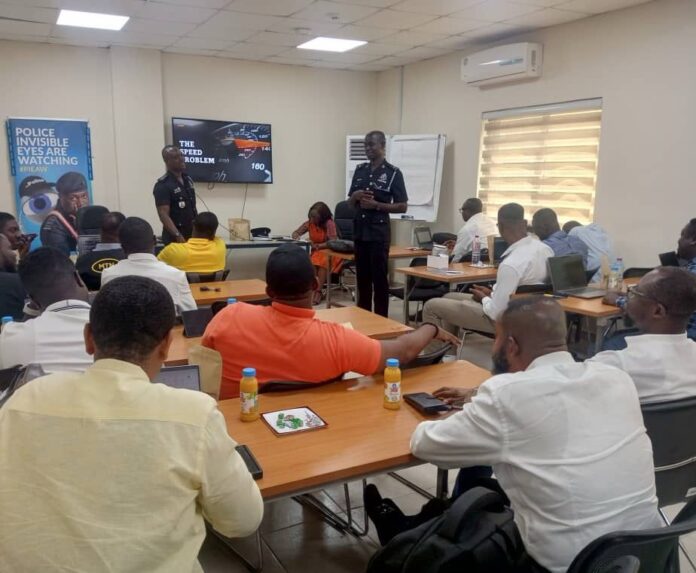The Police Motor Traffic and Transport Department (MTTD) says speeding remains the leading cause of fatal crashes, noting that out of every 100 crashes in Ghana, 62 serious and fatal cases are linked to speeding.
Director of Education, Research and Training at MTTD, Chief Superintendent Alexander Kwaku Obeng, says this makes continuous capacity-building and awareness creation more important than ever.
He observed police work must combine training with enforcement, as communities often misunderstand road safety operations when they are not properly sensitised.
“I think the road safety problem that we have is a very worrying phenomenon that has its own global dimension, sub-regional dimension, national, regional, and community dimension,” he said.

Mr. Obeng raised the concern in an interview at the training of MTN staff and drivers on proper driving and regulations in Kumasi.
Ghana recorded about 11,000 road crashes from January to October this year, representing a 10% increase over the same period last year. More than 20,000 vehicles were involved, also a 10% rise, while 2,400 people died and over 12,000 sustained injuries.
The MTTD Director stressed that these figures call for urgent and coordinated action from all stakeholders.
He explained that the United Nations’ Sustainable Development Goals (SDGs) require all member states, including Ghana, to work toward a 50% reduction in road crashes, injuries, and deaths between 2020 and 2030. He emphasized that the human body is fragile and that road users, especially pedestrians and motorcyclists, remain vulnerable.
Mr. Obeng acknowledged MTN Ghana as an important corporate partner supporting the Police Service to train drivers and improve safe driving practices.

The goal is to help drivers sharpen their skills, maintain their vehicles properly, and adopt attitudes that protect vulnerable road users.
He stressed strict adherence to Ghana’s speed limits under Legislative Instrument 2180, reminding drivers that they must not exceed 30 kilometers per hour on community roads, 50 kilometers per hour on other local roads, 90 km/h on highways, and 100 kilometers per hour on motorways, regardless of how good the road appears.
MTN’s Fleet Management Unit outlined the company’s role in ensuring safe driving across the country. The company currently manages about 600 vehicles nationwide, including status vehicles, tool-of-trade vehicles for operational teams, and pool vehicles assigned to staff for business activities.
The fleet unit oversees more than 100 professional drivers who support MTN’s operations across various regions. Due to this large number, the company invests heavily in continuous training to keep its workforce competent and safety-conscious.
This year, MTN partnered with the MTTD, recognising them as the rightful authority in road traffic regulations aligning with the national strategy outlined by Chief Superintendent Obeng.
Source: Josephine Sagoe


